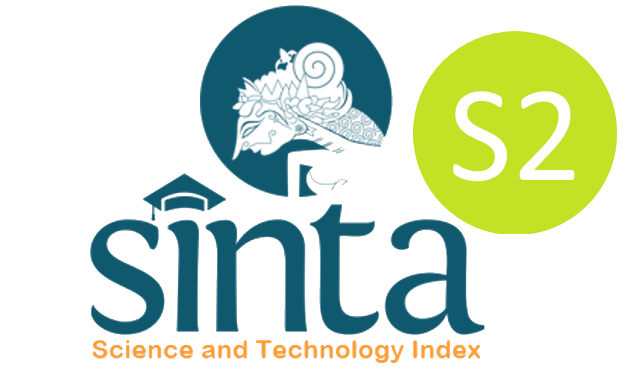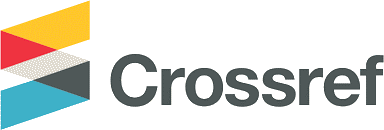Abstract
The increased adoption of distance learning in higher education, which was especially evident in urban areas during the COVID-19 pandemic, underscores the crucial role of self-regulated learning (SRL) skills. Although previous research demonstrated positive correlations between learner factors and SRL in distance education, a research gap exists in understanding the mediating and moderating roles of specific factors. This study addresses this concern by examining the relationship between digital literacy and SRL as mediated by attitude toward e-learning with task value as a moderator. The study recruited 538 college students (aged 17–25 years) from 10 public universities. Digital literacy was measured using the Self-perceived Evaluations of Digital Literacy Competencies. We measured attitudes toward e-learning using the E-Learning Attitudes Questionnaire. This study also used the Subjective Task Value instrument to measure task value and the Self-Regulated Online Learning Scale to measure SRL. The results indicate that task value significantly strengthened the relationship between digital literacy and SRL through the mediating role of attitudes toward e-learning. Hence, digital literacy can support SRL through the mediation of attitudes toward e-learning and is strengthened by the task values of college students in distance learning.
References
Ahrens, A. & Zaščerinska, J. (2015). A Comparative Study of Business and Engineering Students' Attitude to Mobile Technologies in Distance Learning. In P. Ordóñez de Pablos, R. Tennyson, & M. Lytras (Eds.), Assessing the Role of Mobile Technologies and Distance Learning in Higher Education (pp. 29-59). IGI Global. https://doi.org/10.4018/978-1-4666-7316-8.ch002
Albelbisi, N. A., & Yusop, F. D. (2019). Factors influencing learners’ self-regulated learning skills in a massive open online course (MOOC) environment. Turkish Online Journal of Distance Education, 20(3), 1–16. https://doi.org/10.17718/tojde.598191
Arbiyah, N., & Triatmoko, F. A. (2016). Pengembangan Skala regulasi Diri dalam pembelajaran Daring (Self-regulated online learning scale) pada Mahasiswa. In Mind Set, 7.
Baig, A., & Burross, H. L. (2017). Relationship between the subjective task value of a course and level of transfer displayed by learners of cognitive behavioral theories. Proquest Dissertations and Theses. https://www.proquest.com/dissertations-theses/relationship-between-subjective-task-value-course/docview/1988279560/se-2?accountid=17242
Barnard, L., Paton, V., & Lan, W. (2008). Online self-regulatory learning behaviors as a mediator in the relationship between online course perceptions with achievement. International Review of Research in Open and Distributed Learning, 9(2), 1-11. https://doi.org/10.19173/irrodl.v9i2.516
Baticulon, R. E., Sy, J. J., Alberto, N. R. I., Baron, M. B. C., Mabulay, R. E. C., Rizada, L. G. T., Tiu, C. J. S., Clarion, C. A., & Reyes, J. C. B. (2021). Barriers to online learning in the time of COVID-19: A national survey of medical students in the Philippines. Medical Science Educator, 31(2), 615–626. https://doi.org/10.1007/s40670-021-01231-z
Broadbent, J. (2017). Comparing online and blended learner’s self-regulated learning strategies and academic performance. Internet and Higher Education, 33, 24–32. https://doi.org/10.1016/j.iheduc.2017.01.004
Broadbent, J., & Poon, W. L. (2015). Self-regulated learning strategies & academic achievement in online higher education learning environments: A systematic review. Internet and Higher Education, 27, 1–13. https://doi.org/10.1016/j.iheduc.2015.04.007
Chiu, C.-M., & Wang, E. T. G. (2008). Understanding web-based learning continuance intention: The role of subjective task value. Information and Management, 45(3), 194–201. https://doi.org/10.1016/j.im.2008.02.003
Croft, N., Dalton, A., & Grant, M. (2010). Overcoming isolation in distance learning: Building a learning community through time and space. Journal for Education in the Built Environment, 5(1), 27–64. https://doi.org/10.11120/jebe.2010.05010027
Davis, F. D. (1989). Perceived usefulness, perceived ease of use, and user acceptance of information technology. MIS Quarterly, 13(3), 319–340. https://doi.org/10.2307/249008
Demir Kaymak, Z., & Horzum, M. B. (2013). Relationship between online learning readiness and structure and interaction of online learning students. Kuram ve Uygulamada Egitim Bilimleri, 13(3), 1792–1797. https://doi.org/10.12738/estp.2013.3.1580
Devolder, A., van Braak, J., & Tondeur, J. (2012). Supporting self-regulated learning in computer-based learning environments: Systematic review of effects of scaffolding in the domain of science education. Journal of Computer Assisted Learning, 28(6), 557–573. https://doi.org/10.1111/j.1365-2729.2011.00476.x
Eshet-Alkalai, Y. (2012). Thinking in the digital era: A revised model for digital literacy. Issues in Informing Science and Information Technology, 9(2), 267–276. https://doi.org/10.28945/1621
Eshet-Alkalai, Y., & Chajut, E. (2010). You can teach old dogs new tricks: The factors that affect changes over time in digital literacy. Journal of Information Technology Education: Research, 9(1), 173–181. https://doi.org/10.28945/1186
Febrianto, P. T., Mas’udahdah, S., & Megasari, L. A. (2020). Implementation of online learning during the Covid-19 pandemic on madura island, Indonesia. International Journal of Learning, Teaching and Educational Research, 19(8), 233–254. https://doi.org/10.26803/ijlter.19.8.13
Feriady, M., Nurkhin, A., Mahmud, N., Setiani, R., & Astuti, D. P. (2020). Influence of organizational suport and digital literacy on lecturer acceptance of e-learning in Indonesia: A modification of technologi acceptance model. International Journal of Scientific and Technology Research, 9(1), 2229–2233.
Habibi, A., Yaakob, M. F. M., Mukminin, A., Muhaimin, M., Prasojo, L. D., Yusop, F. D., & Muzakkir, M. (2021). Teachers’ digital technology access to motivation, skills and use: A structural equation modeling study. Aslib Journal of Information Management, 73(4), 543–559. https://doi.org/10.1108/AJIM-11-2020-0382
Hall, N. C., & Goetz, T. (2013). Self-regulated learning. In Emotion, Motivation, and Self-Regulation. Emerald Publishing Limited. https://ebookcentral.proquest.com/lib/indonesiau-ebooks/detail.action?docID=1250103
Hays, A. F. (2018). Introduction to Mediation, Moderation, and Conditional Process Analysis: A Regession Approach. Guilford Press.
Jannah, S. M. (2019). Analysis level of digital literacy of digital natives: How the impact on their self-regulated learning? Ekspektra: Jurnal Bisnis dan Manajemen, 3(2), 173–185 https://doi.org/10.25139/ekt.v3i2.1756
Jansen, R. S., van Leeuwen, A., Janssen, J., Kester, L., & Kalz, M. (2017). Validation of the self-regulated online learning questionnaire. Journal of Computing in Higher Education, 29(1), 6–27. https://doi.org/10.1007/s12528-016-9125-x
Johnson, G., & Davies, S. (2014). Self-regulated learning in digital environments: Theory, research, praxis. British Journal of Research, 1(2), 1–14. http://hdl.handle.net/20.500.11937/45935
Lee, C.-Y. (2015). Changes in self-efficacy and task value in online learning. Distance Education, 36(1), 59–79. https://doi.org/10.1080/01587919.2015.1019967
Lee, D., Watson, S. L., & Watson, W. R. (2020). The relationships between self-efficacy, task value, and self-regulated learning strategies in massive open online courses. International Review of Research in Open and Distance Learning, 21(1), 23–39. https://doi.org/10.19173/irrodl.v20i5.4564
Lee, J., Moon, J., & Cho, B. (2015). The mediating role of self-regulation between digital literacy and learning outcomes in the digital textbook for middle school English. Educational Technology International, 16(1), 58-83.
Liaw, S., & Huang, H. (2011). A study of investigating learner’s attitudes toward e-learning. In The Fifth International Conference on Distance Learning and Education, Vol. 12: pp 28–32.
Moore, M. G. ve Kearsley, G. (2012). (2012). Distance education: a systems view of online learning. Educational Review, 72(6), 800–800. Retrieved from https://doi.org/10.1080/00131911.2020.1766204
Muller, D., Judd, C. M., & Yzerbyt, V. Y. (2005). When moderation is mediated and mediation is moderated. Journal of Personality and Social Psychology, 89(6), 852–863. https://doi.org/10.1037/0022-3514.89.6.852
Napitupulu, R. M. (2020). Dampak pandemi Covid-19 terhadap kepuasan pembelajaran jarak jauh. Jurnal Inovasi Teknologi Pendidikan, 7(1), 22–33. https://doi.org/10.21831/jitp.v7i1.32771
Panadero, E. (2017). A review of self-regulated learning: Six models and four directions for research. In Frontiers in Psychology, 8, 422. https://doi.org/10.3389/fpsyg.2017.00422
Peechapol, C., Na-Songkhla, J., Sujiva, S., & Luangsodsai, A. (2018). An exploration of factors influencing self-efficacy in online learning: A systematic review. International Journal of Emerging Technologies in Learning, 13(9), 64. https://doi.org/10.3991/ijet.v13i09.8351
Perera Muthupoltotage, U., & Gardner, L. (2018). Analysing the relationships between digital literacy and self-regulated learning of undergraduates—A preliminary investigation. In. Advances in Information Systems Development, 26, 1–16. https://doi.org/10.1007/978-3-319-74817-7_1
Peytcheva-Forsyth, R., Yovkova, B., & Aleksieva, L. (2018). Factors affecting students’ attitudes towards online learning - The case of Sofia University. AIP Conference Proceedings, 2048, 020025-1–020025-8. American Institute of Physics Inc. https://doi.org/10.1063/1.5082043
Pintrich, P. R. (2000). The role of goal orientation in self-regulated learning. In Handbook of Self-Regulation, 451–502. https://doi.org/10.1016/b978-012109890-2/50043-3
Porat, E., Blau, I., & Barak, A. (2018). Measuring digital literacies: Junior high-school students’ perceived competencies versus actual performance. Computers and Education, 126, 23–36. https://doi.org/10.1016/j.compedu.2018.06.030
Ranellucci, J., Rosenberg, J. M., & Poitras, E. G. (2020). Exploring pre-service teachers’ use of technology: The technology acceptance model and expectancy–value theory. Journal of Computer Assisted Learning, 36(6), 810–824. https://doi.org/10.1111/jcal.12459
Rhema, A., & Miliszewska, I. (2014). Analysis of student attitudes towards e-learning: The case of engineering students in Libya. Issues in Informing Science and Information Technology, 11, 169–190. https://doi.org/10.28945/1987
Ristekbrin (2019, August 16). Kementerian riset dan teknologi – Pendidikan tinggi [Kemenristekdikti]. Menristekdikti Umumkan Klasterisasi Perguruan Tinggi Indonesia 2019, Fokuskan Hasil Dari Perguruan Tinggi. https://www.ristekbrin.go.id/menristekdikti-umumkan-klasterisasi-perguruan-tinggi-indonesia-2019-fokuskan-hasil-dari-perguruan-tinggi/
Rothman, D. (2014). A tsunami of learners called generation Z. Public Safety: A State of Mind, (1), 1–5. Retrieved from www.mdle.net/Journal/A_Tsunami_of_Learners_Called_Generation_Z.pdf.
Rustandi, D. (2020, October 22). Transformasi pendidikan tinggi dan akselerasi inovasi perguruan tinggi di masa pandemi. Kemdikbud. http://dikti.kemdikbud.go.id/kabar-dikti/kabar/transformasi-pendidikan-tinggi-dan-akselerasi-inovasi-perguruan-tinggi-di-masa-pandemi/
Santoso, H. B., & Hutabarat, P. (2018, July 24). Akselerasi e-learning dan online education di tanah air. Fakultas Ilmu Komputer UI. https://www.cs.ui.ac.id/index.php/akselerasi-e-learning-dan-online-education-di-tanah-air/?lang=en
Seemiller, C., & Grace, M. (2017). Generation Z: Educating and engaging the next generation of students. About Campus: Enriching the Student Learning Experience, 22(3), 21–26. https://doi.org/10.1002/abc.21293
Selingo, J. J. (2018). The New Generation of Students: How Colleges Can Recruit, Teach, and Serve Gen Z. Chronicle of Higher Education.
Smidt, E., Bunk, J., McGrory, B., Li, R., & Gatenby, T. (2014). Student attitudes about distance education: Focusing on context and effective practices. IAFOR Journal of Education, 2(1), 40–64. https://doi.org/10.22492/ije.2.1.02
un, P.-C., Tsai, R. J., Finger, G., Chen, Y.-Y., & Yeh, D. (2008). What drives a successful e-learning? An empirical investigation of the critical factors influencing learner satisfaction. Computers and Education, 50(4), 1183–1202. https://doi.org/10.1016/j.compedu.2006.11.007
Swafford, M. (2018). The relationship between motivation and online self-regulated learning. Journal of Human Sciences and Extension, 6(3), 6. https://doi.org/10.54718/AWIJ9321
Tang, C. M., & Chaw, L. Y. (2016). Digital literacy: A prerequisite for effective learning in a blended learning environment? Electronic Journal of e-Learning, 14(1), 54–65.
Tuamsuk, K., & Subramaniam, M. (2017). The current state and influential factors in the development of digital literacy in Thailand’s higher education. Information and Learning Science, 118(5/6), 235–251. https://doi.org/10.1108/ILS-11-2016-0076
Uysal, S. (2019). Predictors of self-regulated learning skills of computer education and instructional technology (CEIT) students. International Journal of Psycho-Educational Sciences, 8(3), 29–40.
Wigfield, A., Rosenzweig, E. Q., & Eccles, J. S. (2017). Achievement values: Interactions, interventions, and future directions. In A. J. Elliot, C. S. Dweck, & D. S. Yeager (Eds.), Handbook of competence and motivation (p. 722). Guildford Press. Retrieved from https://www.routledge.com/Handbook-of-Competence-and-Motivation-Second-Edition-Theory-and-Application/Elliot-Dweck-Yeager/p/book/9781462529605.
Wong, J., Baars, M., Davis, D., Van Der Zee, T., Houben, G.-J., & Paas, F. (2019). Supporting self-regulated learning in online learning environments and MOOCs: A systematic review. International Journal of Human-Computer Interaction, 35(4–5), 356–373. https://doi.org/10.1080/10447318.2018.1543084
Yang, M., & Kim, J. (2014). Correlation between digital literacy and self-regulated learning skills of learners in university e-learning environment. Advanced Science and Technology Letters, 71, 80–83. https://doi.org/10.14257/astl.2014.71.19
Zhao, H., & Chen, L. (2016). How can self-regulated learning be supported in e-learning 2.0 environment: A comparative study. Journal of Educational Technology Development and Exchange, 9(2), 1. https://doi.org/10.18785/jetde.0902.01
Recommended Citation
Muasyaroh, Husnul and Royanto, Lucia R.M.
(2024)
"Digital literacy, attitudes toward e-learning, and task value roles in college students’ distance learning self-regulation,"
Psychological Research on Urban Society: Vol. 7:
No.
1, Article 1.
DOI: 10.7454/proust.v7i1.1156
Available at:
https://scholarhub.ui.ac.id/proust/vol7/iss1/1
Included in
Educational Psychology Commons, Educational Technology Commons, Higher Education Commons, Online and Distance Education Commons, Psychology Commons







